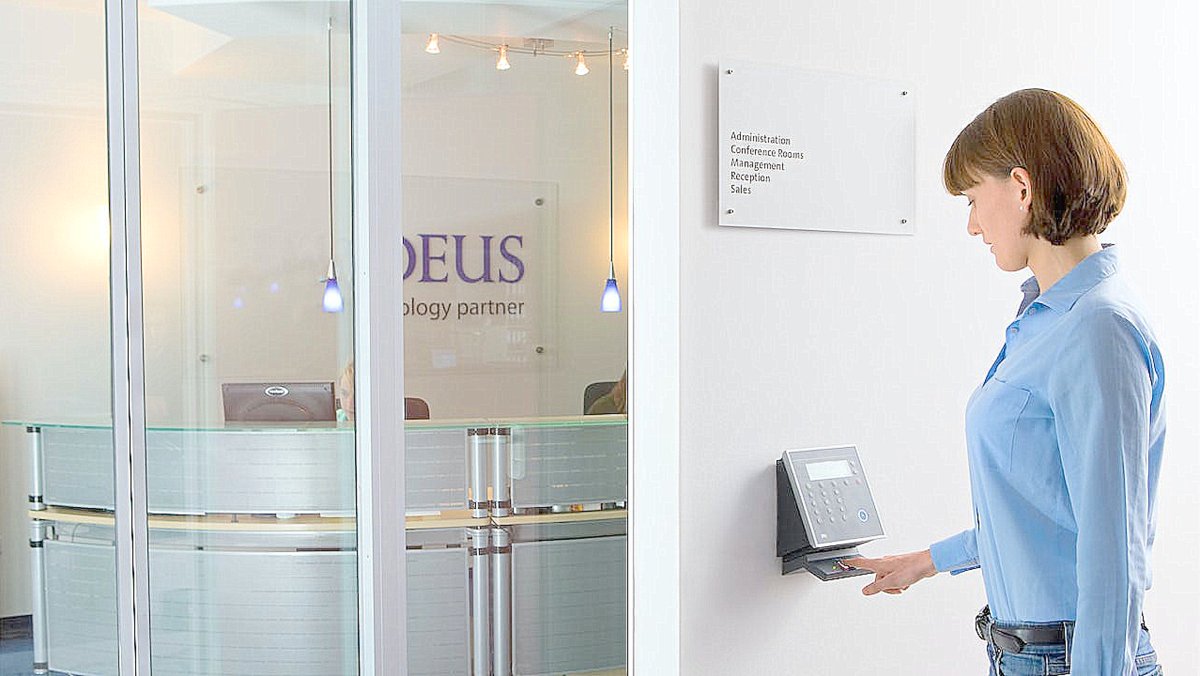
Imagine navigating through a labyrinth of potential privacy breaches and security vulnerabilities in the realm of biometric time clock systems. Just like a skilled explorer, you must carefully tread the path of balancing convenience and efficiency with protecting sensitive employee data. But fear not, as this discussion will shed light on the intricacies of privacy concerns, security measures, compliance considerations, employee rights, and best practices for implementing biometric time clock systems. So, prepare to embark on a journey where you uncover the hidden secrets of this ever-evolving landscape, ensuring the safeguarding of privacy and security in this digital age.
Key Takeaways
- Biometric time clock systems provide a secure and accurate way to track employee attendance and prevent time theft.
- Privacy concerns and compliance considerations include data security, informed consent, storage and retention policies, third-party access, transparency, and accountability.
- Security measures for biometric time clock systems include encryption, strong access controls, regular system updates and patches, security audits and risk assessments.
- Employees have rights regarding their biometric data, including the right to be informed, give informed consent, access and correct data, and request deletion. It is important to exercise these rights to protect privacy and ensure proper handling of biometric information.
Biometric Time Clock Systems: An Overview
In this section, we will provide you with an overview of biometric time clock systems and how they are used in various industries. Biometric time clock systems are a type of technology that uses unique physical or behavioral characteristics to accurately identify individuals. These characteristics can include fingerprints, handprints, facial recognition, iris scans, and voice patterns.
These systems are widely used in industries such as healthcare, finance, manufacturing, and hospitality. One of the main benefits of biometric time clock systems is their ability to prevent time theft and buddy punching. By requiring employees to physically authenticate themselves using their unique biometric features, these systems ensure that only authorized individuals are able to clock in and out. This not only increases accuracy in tracking employee attendance but also promotes fairness and accountability.
Furthermore, biometric time clock systems offer enhanced security compared to traditional time clock methods. Since biometric features are unique to each individual, it is extremely difficult for someone to impersonate another person and gain access to the system. This helps protect sensitive information and prevents unauthorized individuals from gaining entry to restricted areas.
Privacy Concerns in Biometric Time Clock Systems
With the benefits of biometric time clock systems in mind, it is important to address the privacy concerns that may arise from the use of these technologies. While biometric time clock systems offer efficiency and accuracy in tracking employee attendance, they also raise several privacy concerns that need to be considered:
- Data security: Biometric data, such as fingerprints or facial scans, is highly sensitive and can be vulnerable to unauthorized access or misuse. Employers must ensure robust security measures to protect this data from breaches.
- Informed consent: Employees must be fully informed about the collection and use of their biometric data. Clear consent procedures should be in place, and employees should have the right to opt out if they have concerns about their privacy.
- Storage and retention: Proper data storage and retention policies should be implemented to ensure that biometric data is not kept for longer than necessary and is securely deleted when no longer needed.
- Third-party access: If biometric data is outsourced to a third-party provider, employers must carefully assess their security and privacy practices to ensure compliance with regulations and protect employee privacy.
- Transparency and accountability: Employers should maintain transparency about the purpose and use of biometric data, and establish accountability mechanisms to address any privacy breaches or concerns that may arise.
Security Measures for Biometric Time Clock Systems
Implement robust security measures to safeguard the biometric data collected by biometric time clock systems. It is crucial to protect this sensitive information from unauthorized access and potential breaches. One of the essential security measures is encryption. By encrypting the biometric data, it becomes unreadable to anyone without the proper decryption key, ensuring that only authorized personnel can access and use the information. Additionally, implementing strong access controls is vital. By setting up multi-factor authentication, such as requiring a password or a key card in addition to the biometric scan, you add an extra layer of security, making it more difficult for unauthorized individuals to gain access. Regular system updates and patches also play a crucial role in maintaining security. These updates often include security enhancements and fixes for any vulnerabilities that hackers may exploit. It is essential to keep the biometric time clock system’s software up to date to minimize the risk of unauthorized access. Lastly, conducting regular security audits and risk assessments can help identify any weaknesses in the system and ensure that appropriate measures are in place to address them promptly. By implementing these security measures, you can protect the biometric data collected by the time clock system and maintain the privacy and security of your employees’ information.
Compliance Considerations for Biometric Time Clock Systems
To ensure compliance with privacy and security regulations, it is important to consider specific requirements when implementing biometric time clock systems. These considerations will help you navigate the complex landscape of privacy and security laws, ensuring that your biometric time clock system meets all necessary standards. Here are some key compliance factors to keep in mind:
- Consent: Obtain informed consent from employees before collecting and using their biometric data. Clearly communicate the purpose, scope, and duration of data collection and usage.
- Storage and Retention: Implement robust data storage and retention policies to protect the confidentiality and integrity of biometric data. Ensure that data is securely stored and that it is only retained for as long as necessary.
- Access Controls: Implement strong access controls to prevent unauthorized access to biometric data. Limit access to only authorized personnel and regularly review access privileges.
- Data Sharing: Take precautions when sharing biometric data with third parties. Conduct due diligence to ensure that these parties have appropriate privacy and security measures in place.
- Data Breach Response: Develop a comprehensive data breach response plan that includes procedures for detecting, containing, and mitigating the impact of data breaches involving biometric data.
Employee Rights and Biometric Data Protection
Employees have the right to protect their biometric data and ensure its proper handling. As an employee, it is essential to understand your rights when it comes to the collection and use of your biometric information. Firstly, you have the right to be informed about why your biometric data is being collected and how it will be used. This includes knowing who will have access to your data and how long it will be retained. Additionally, you have the right to give your informed consent before your biometric data is collected. This means that you should have the opportunity to understand the implications of providing your biometric information and make an informed decision about whether or not to do so. Furthermore, you have the right to access and correct your biometric data. If you believe that your data is inaccurate or incomplete, you have the right to request that it be updated or corrected. Lastly, you have the right to request the deletion of your biometric data once it is no longer necessary for the purpose for which it was collected. It is important to be aware of these rights and to exercise them to protect your privacy and ensure the proper handling of your biometric information.
Best Practices for Implementing Biometric Time Clock Systems
One important aspect to consider when implementing biometric time clock systems is ensuring the privacy and security of the collected biometric data. To help you navigate this process effectively, here are some best practices to keep in mind:
- Conduct a thorough risk assessment: Identify potential vulnerabilities and risks associated with the implementation of the biometric time clock system. This includes assessing the storage, transmission, and access points of the biometric data.
- Implement strong access controls: Limit access to the biometric data to authorized personnel only. Use strong authentication methods, such as multi-factor authentication, to ensure that only authorized individuals can access and manage the system.
- Encrypt the biometric data: Use encryption techniques to protect the stored and transmitted biometric data. Encryption adds an extra layer of security and helps prevent unauthorized access or tampering.
- Regularly update and patch the system: Stay up to date with the latest security patches and updates for both the hardware and software components of the biometric time clock system. This helps address any known vulnerabilities and protects against potential threats.
- Train employees on privacy and security best practices: Educate your employees on how to handle and protect biometric data. This includes emphasizing the importance of maintaining confidentiality and following proper security protocols.
Conclusion
In conclusion, navigating privacy and security in biometric time clock systems requires careful consideration of privacy concerns, implementation of robust security measures, adherence to compliance regulations, and protection of employee rights. It is crucial for organizations to prioritize the safeguarding of biometric data and ensure that best practices are followed during system implementation. By doing so, businesses can leverage the benefits of biometric time clock systems while maintaining trust and confidence among their employees.
Did this press release inform you? Would you like to comment on the press release? If you do, we would respond. Do let us know your thoughts if you have any suggestions. So hit us up on Facebook, Instagram! or Twitter.
INDIE ACTIVITIES
Escape by Howard J. Ford stars Sarah Alexandra Marks from Saban Now Out on VOD
Actress Sarah Alexandra Marks stars of a Saban action/thriller titled Escape
Andre Royo to Deliver Keynote Address at Beyond Hollywood Int’l Film Festival Awards Night
Andre Royo is at Beyond Hollywood Int’l Film Festival Release April 28th, 2024
CLODAGH Directed by Portia A. Buckley is an Official Selected Short at Cleveland
CLODAGH has been selected for the prestigious Cleveland International Film Festival
Stargazer by Alan McIntyre. A Spellbinding Tale of Science, Seduction and Betrayal Debuts April
Stargazer Gets Digital Debut for North American VOD Platforms and DVD on April 30, 2024
Day Labor by R. Ellis Frazier, Action Thriller Gets May Release
Freestyle Digital Media Acquires Action Thriller “Day Labor” For May Release






